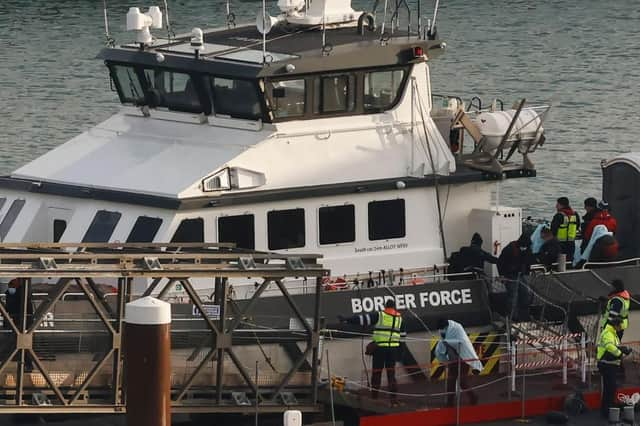Why new ‘deterrent’ to stop non-legal arrivals in UK is pointless when refugees are not experts on Westminster asylum policy


The answer is very few. Yet, in announcing his new plans to deter asylum seekers considering embarking on the dangerous journey in a small boat across the English Channel to reach British shores, Prime Minister Rishi Sunak somehow seems to believe the opposite.
Under the proposals, which could be put into legislation as early as Tuesday, anyone arriving in the UK under “non-legal” means – such as on a small boat crossing the Channel, or in the back of a lorry – will be barred from trying to claim asylum here. Instead, they will be shipped off to a “safe third country”, such as Rwanda, with which the UK Government has an already existing – albeit not-yet-used - agreement for the processing of asylum seekers.
Advertisement
Hide AdAdvertisement
Hide AdThe government hopes that these new measures will act as a significant deterrent for those considering making the dangerous journey in a small boat.
In response to the news, Christina Marriott, executive director of strategy at the Red Cross, raised the point which is obvious to anyone who has ever spoken to refugees seeking asylum in a Western country – but which is clearly not obvious to Westminster politicians: most people hoping to claim asylum in the UK have literally no idea what the rules are.
Many people coming from Afghanistan – who made up 20 per cent of “irregular” small boat arrivals into the UK in 2022, with the proportion continuing to rise towards the end of the year - have little education. Just over a third of people there can read and write. Less than a quarter of the population of the Taliban-controlled country has internet access.
The idea that they may be researching www.gov.uk with great fervour, before handing over everything they have ever owned to a people trafficker and heading off on what is only ever a harrowing and treacherous journey, seems highly unlikely.
Yet, somehow, the government’s proposals rely on the fact that to be a deterrent, people will need to be aware of the new rules before they leave their home country.
Let’s wait to see how that works.
Comments
Want to join the conversation? Please or to comment on this article.